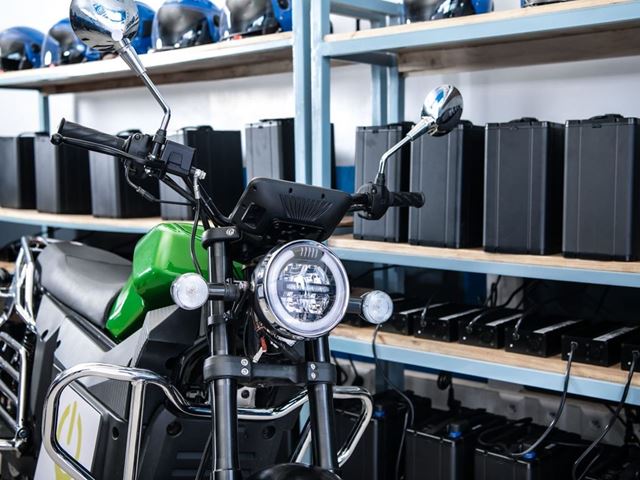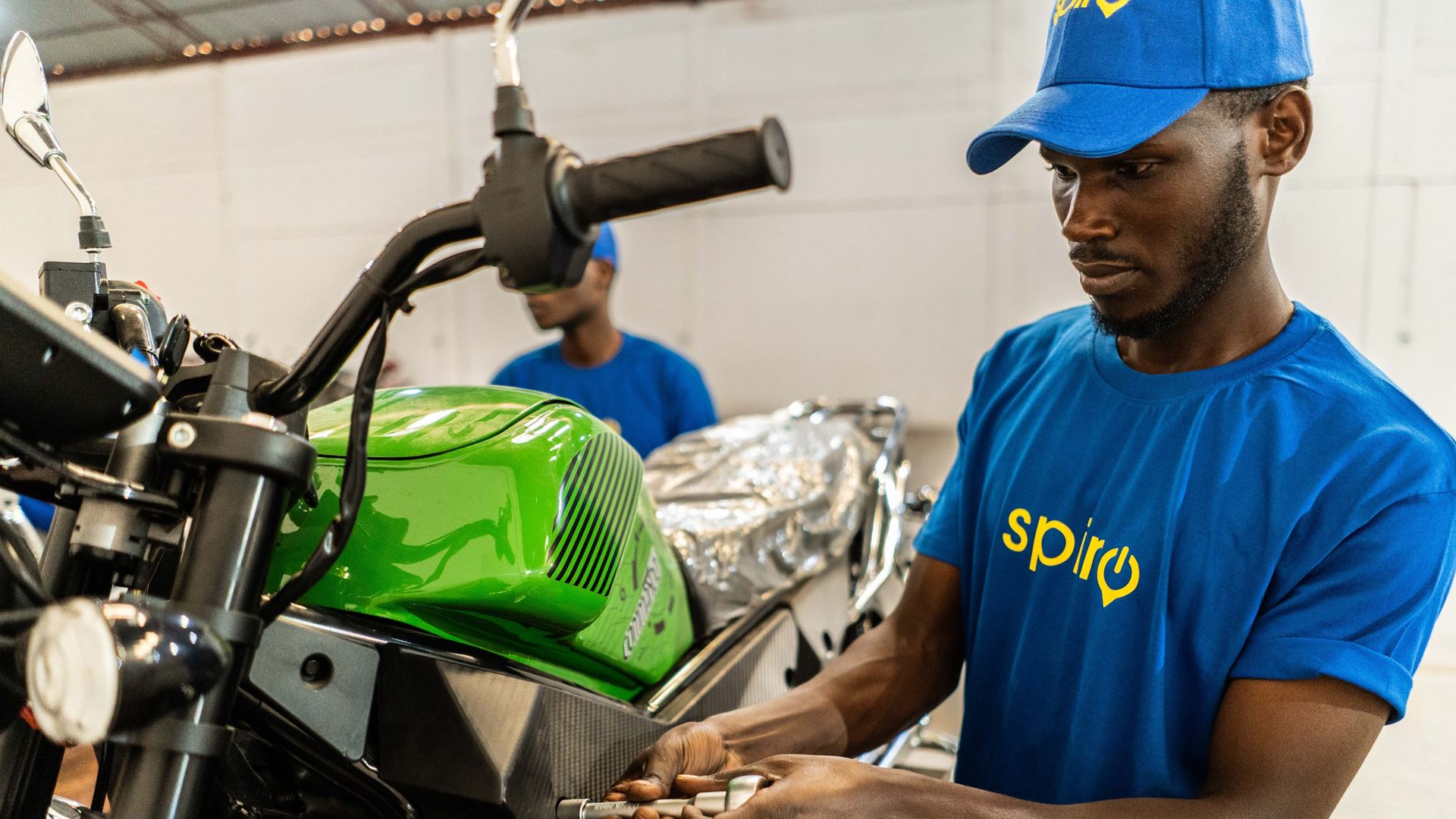
- Latest: Welcome to Auto Futures - Mobility News, Features, Exclusives and More...
- Latest: China's NIO & GAC Announce Partnership on EV Charging & Battery Swapping
- Latest: Automobili Pininfarina Unveils Electric Battista Cinquantacinque
- Latest: UK Self-Driving Startup Wayve Raises Over $1 Billion Led by SoftBank
- Latest: Mercedes-Benz Trucks Sends eActros 600 on Test run in 20 European Countries
- Latest: How Graphjet Technology is Producing Graphite out of Waste - CEO
Africa's Automotive Story "Will be one of Sustainability, Accessibility, & Innovation" - Spiro CEO Jules Samain
Adrian Smith
- Aug 17 2023

Spiro was born out of a desire to address Africa's unique transportation needs. The company manufactures electric motorbikes, alongside developing related batteries and battery swap stations. It's backed by $63 million in funding.
"While observing the global automotive shift, we recognized that African nations required mobility solutions tailored to their unique challenges – especially last mile - from diverse terrains to socio-economic factors. Spiro emerged as an endeavor to merge global advancements in e-mobility with Africa's local nuances," Jules Samain, Spiro's CEO, tells Auto Futures.
Today, in Togo, Benin and Rwanda, Spiro has almost 10,000 bikes on the road, with 80 million clean kilometers driven and two million battery swaps performed.
Beyond just convenience, swappable batteries represent a scalable model for e-mobility in Africa, explains Samain.
"While charging infrastructures require considerable time and capital investments, battery-swapping stations are more agile. For users, it translates to minimal downtime – akin to traditional refueling. Our ambition is that battery swaps should take place in two minutes. Many of our customers are motorbike taxis so they cannot afford to spend time off the road waiting for charging. Furthermore, it allows for centralized charging, optimizing grid management and ensuring batteries are charged using renewable sources wherever possible," he says.
At its Swap N'Go battery stations, any rider or driver of an electric two-wheeler with a battery running out of charge can go and trade their discharged batteries for a completely charged one.
"Our Swap N'Go stations are designed to be more than just transactional points. While their primary function is to facilitate swift battery exchanges, they're also envisioned as community hubs. Each station is equipped with diagnostic tools and trained personnel, ensuring riders receive technical support and maintenance services. In essence, they represent the future of holistic vehicular care tailored for electric mobility."
Spiro aims to have a swapping station every one kilometre across Africa.

Vehicles That Resonate With Local Conditions
Spiro plans to rapidly expand following the announcement of funding worth $63 million in total.
"The funding we've secured from Société Générale serves as both an endorsement and a catalyst. It underscores the belief that key industry players and investors have in our concept, especially given our demonstrable successes in our foundational markets of Benin and Togo. These funds will primarily bolster our presence and deepen our impact in these early markets. They will drive infrastructure enhancement, user outreach, and product refinement tailored for Benin and Togo," says Samain.
"Concurrently, our sights are set on broader horizons. We are keenly eyeing expansion opportunities, with East Africa being a region of significant interest. And, while I don’t want to reveal too much just yet, I can hint that there are exciting plans afoot for Kenya – expect announcements soon!" he teases.
EV manufacturing facilities are being built in Togo and Benin, with a production goal of 1,000 bikes per day.
"Localizing production is strategic on multiple fronts. Firstly, it allows for custom-built vehicles suited to our varied terrains and climates. From sandy deserts to bustling urban centers, we're creating vehicles that resonate with local conditions. Secondly, local manufacturing has socio-economic implications, driving employment, fostering technical expertise, and supporting ancillary industries. This not only boosts the economy but also ensures that the money spent remains within the continent," he explains.
As well as encouraging and employing local talent, the company also provides vocational training for women in the countries it operates in.
"Diversity is a driving force behind innovation. We're steadfast in our commitment to creating an inclusive workspace. This involves targeted recruitment drives, mentorship programs, and women-centric skill development initiatives. It is important to us that women are empowered at all levels of our business...we're also advocating for broader gender representation across the automotive sector."

Africa's Green Mobility Transition
Spiro's wider aim is to contribute to sustainability by reducing the dependency on non-renewable energy. However, a multi-pronged approach is needed to acclerate the adoption of EVs across the continent.
"We're pushing for stronger public-private partnerships, enabling policy frameworks, and grassroots awareness campaigns. Given the auto industry's vast supply chain, there's an opportunity to integrate more sustainable practices at every step - from manufacturing to end-of-life vehicle management," says Samain.
"With the right mix of incentives, education, and accessible solutions, Africa can fast-track its green mobility transition. We have invested in over 300 swap stations to counter range anxiety and we will wait to see if other motorbike providers choose to partner with us to use our infrastructure in future," he adds.
Finally, we asked Samain what electric mobility in Africa will look like by the end of the decade.
"I envision a continent where electric vehicles aren't a novelty but a norm. By 2030, urban centers across Africa will be bustling with a mix of personal EVs, shared mobility solutions, and electric public transport. The narrative will shift from just vehicle ownership to accessing sustainable mobility. Infrastructure will evolve, with charging and swapping stations becoming as ubiquitous as traditional fuel stations. The African automotive narrative will be one of sustainability, accessibility, and innovation," he predicts.
Tags
Popular Categories
